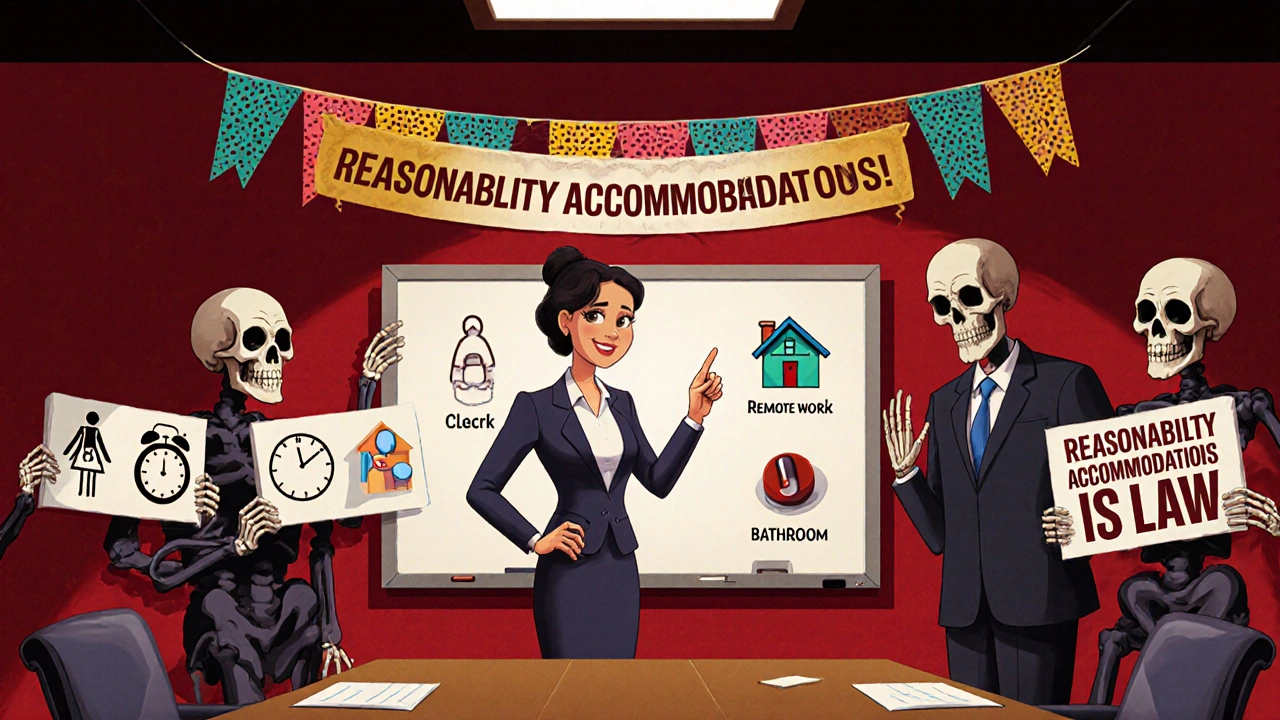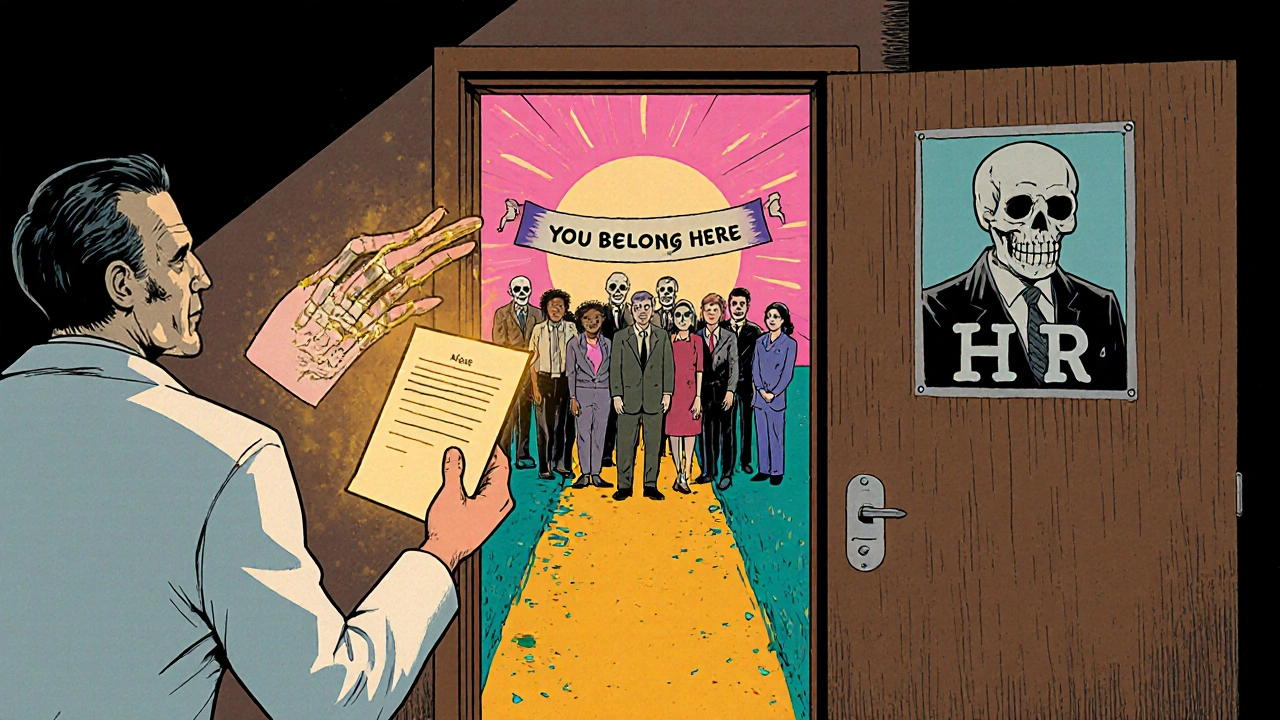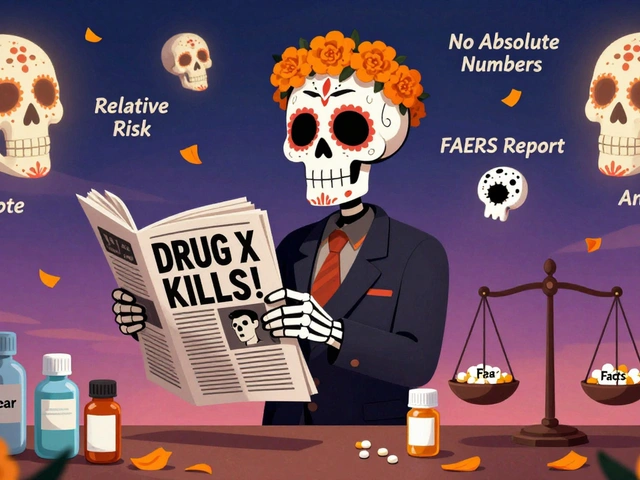If you’re taking atazanavir for HIV, you’re not just managing a medical condition-you’re also navigating your rights at work. Many people assume that taking medication like atazanavir is a private matter, but the truth is, your health can directly impact your job. You might need flexible hours for doctor visits, time off for side effects, or adjustments to your workload. And under the law, you’re not asking for special treatment-you’re asking for what’s already yours.
Atazanavir isn’t just a pill-it’s part of your daily life
Atazanavir is an antiretroviral drug used to treat HIV. It works by blocking an enzyme the virus needs to multiply. Most people take it once a day, often with food to help absorption. But it’s not a simple, side-effect-free medication. Common reactions include nausea, jaundice (yellowing of the skin or eyes), headaches, and fatigue. For some, these symptoms are mild. For others, they can be intense enough to interfere with concentration, energy levels, or even the ability to sit at a desk for eight hours straight.
That’s why understanding your workplace rights isn’t optional. It’s practical. If you’re feeling sluggish after lunch because your body is processing atazanavir, you shouldn’t have to hide it or risk your job. You shouldn’t be told to "just push through" when your liver is working overtime to metabolize the drug.
Legally, your HIV status and medication use are protected
In Canada, the Canadian Human Rights Act and provincial laws like Alberta’s Human Rights Act protect people with disabilities-including chronic health conditions like HIV. Taking atazanavir doesn’t make you a "disabled" person in the traditional sense, but if your medication causes symptoms that limit your ability to perform daily tasks, you qualify for protection. That includes your job.
Employers can’t fire you, demote you, or deny you promotions because you’re on HIV treatment. They also can’t ask you to disclose your diagnosis unless it directly affects safety-critical duties (like operating heavy machinery, which rarely applies to most office or service jobs). Even then, they must prove the risk is real, not assumed.
What matters is the impact of the medication, not the diagnosis. If atazanavir causes you to need a 15-minute break every few hours to manage nausea, that’s a reasonable accommodation. If you need to leave early twice a month for blood tests, that’s protected. You don’t need to share your medical records unless you’re requesting accommodation-and even then, you can provide a doctor’s note without revealing your diagnosis.
What counts as a reasonable accommodation?
Reasonable accommodation means your employer makes changes so you can do your job without being penalized for your health. It doesn’t mean lowering standards. It means removing unnecessary barriers.
- Flexible start or end times to avoid rush hour commutes when you’re feeling unwell
- Remote work options for days when fatigue or side effects are worse
- Adjusting your workspace to be near a bathroom if gastrointestinal issues are frequent
- Allowing short breaks during the day to rest, hydrate, or take medication
- Temporarily reducing workload during periods of intense side effects
- Changing meeting times so they don’t conflict with medical appointments
These aren’t luxuries. They’re standard adjustments made for people with migraines, diabetes, or chronic back pain. HIV treatment is no different. A 2023 study from the Canadian AIDS Society found that 68% of people on HIV medications who requested workplace accommodations received them-without ever disclosing their diagnosis. That’s because the law protects the effect of the treatment, not the reason behind it.

How to ask for accommodations without risking your job
Asking for accommodations can feel scary. You might worry about stigma, judgment, or being seen as "less reliable." But the process is simpler than most people think.
- Document your needs. Keep a log of when side effects hit, how long they last, and what you need to manage them. This isn’t for your employer-it’s to clarify your own needs.
- Speak to your manager or HR. You don’t need to say, "I have HIV." You can say, "I’m managing a chronic health condition that sometimes affects my energy and focus. I’d like to discuss ways we can make my schedule or workspace more supportive."
- Offer solutions. Don’t just say, "I need help." Say, "Could I work from home on Tuesdays when I have appointments?" or "Would it be possible to shift my meetings to afternoons?"
- Provide a doctor’s note if asked. You can ask your provider to write a note that says, "This patient requires accommodations for a medical condition," without specifying what the condition is.
- Follow up in writing. Send a quick email summarizing what you discussed. It creates a paper trail and shows you’re being professional.
Most employers want to keep good employees. They just don’t always know how. Your request isn’t a burden-it’s an opportunity for them to build a more inclusive workplace.
What if your employer says no?
Some employers will push back. They might say, "We can’t make exceptions," or "It’s not fair to the team." That’s not legal. If your request is reasonable and doesn’t create an undue hardship (like shutting down operations or costing tens of thousands), they must accommodate you.
If you’re denied:
- Ask for the reason in writing. What exactly makes it an "undue hardship"?
- Request a meeting with HR to discuss alternatives.
- File a complaint with your provincial human rights commission. In Alberta, that’s the Alberta Human Rights Commission. The process is free, confidential, and doesn’t require a lawyer.
Between 2020 and 2024, over 120 complaints related to HIV and workplace discrimination were filed in Canada. Nearly 80% were resolved in the employee’s favor, often with policy changes, compensation, or reinstatement.
You’re not alone-and you don’t have to fight alone
Organizations like CATIE (Canadian AIDS Treatment Information Exchange) and the Canadian HIV/AIDS Legal Network offer free, confidential advice for people navigating work and HIV. They can help you draft accommodation requests, understand your rights, and even connect you with legal support.
There’s also peer support. Many people on atazanavir and other HIV meds have been through this. Talking to someone who’s been asked to justify their need for a bathroom break or a flexible schedule can make all the difference.

Employers: This isn’t just about compliance-it’s about culture
If you’re an employer reading this, know this: protecting employees on HIV treatment isn’t a legal obligation you check off-it’s a chance to build trust. People who feel safe being themselves at work are more loyal, more productive, and more likely to stay. A 2024 survey by the Canadian Centre for Diversity and Inclusion found that companies with strong accommodation policies had 34% lower turnover and higher employee satisfaction scores.
Training managers on disability inclusion doesn’t mean hiring consultants. It means having honest conversations. It means asking, "What do you need to do your best work?" instead of assuming everyone works the same way.
Final thought: Your health doesn’t make you less capable
Atazanavir helps you live a long, healthy life. It doesn’t define your value as a worker. You don’t need to be perfect to be reliable. You don’t need to hide your meds to be respected. Your rights aren’t a favor-they’re the law.
If you’re taking atazanavir, you’re already doing something hard. You don’t need to add the stress of fighting for your job on top of it. Know your rights. Speak up. And remember: you’re not asking for special treatment. You’re asking for the same chance everyone else gets.
Do I have to tell my employer I’m taking atazanavir?
No, you don’t have to disclose your diagnosis or medication. You only need to explain that you’re managing a medical condition that requires accommodations. Your doctor can provide a note without naming the condition. Employers can’t force you to reveal your HIV status.
Can I be fired for taking atazanavir?
No. Under Canadian law, firing someone because they take HIV medication is illegal discrimination. Even if side effects affect your performance, your employer must first explore reasonable accommodations before considering any disciplinary action.
What if my side effects are mild? Do I still have rights?
Yes. The law protects you if your condition-even if mild-interferes with your ability to perform job duties. If you need a short break to rest or a change in schedule to manage nausea, that qualifies. You don’t need to be severely disabled to be protected.
Can my employer require me to take a medical exam?
Only if it’s required for all employees in the same role and directly related to safety or job performance. For most office jobs, this isn’t allowed. Employers can’t single you out for medical testing because you’re on HIV medication.
What if I’m working remotely? Do workplace rights still apply?
Absolutely. Remote workers have the same rights as those in offices. If you need flexible hours, quiet time during the day, or adjustments to your home workspace due to side effects, your employer must consider those requests the same way they would for in-person staff.
Next steps: Know your rights, then act
Start by reviewing your provincial human rights commission website. In Alberta, visit Alberta Human Rights Commission (or your province’s equivalent). Download their guide on workplace accommodations. Keep it handy.
Next, talk to your doctor. Ask if they can provide a generic accommodation note. Most are happy to help.
Finally, reach out to CATIE or the Canadian HIV/AIDS Legal Network. They offer free one-on-one support. You don’t need to be in crisis to ask for help. Just knowing your rights can change everything.
You’re not asking for permission to be well. You’re asking to be treated like everyone else. And you’re entitled to that.








